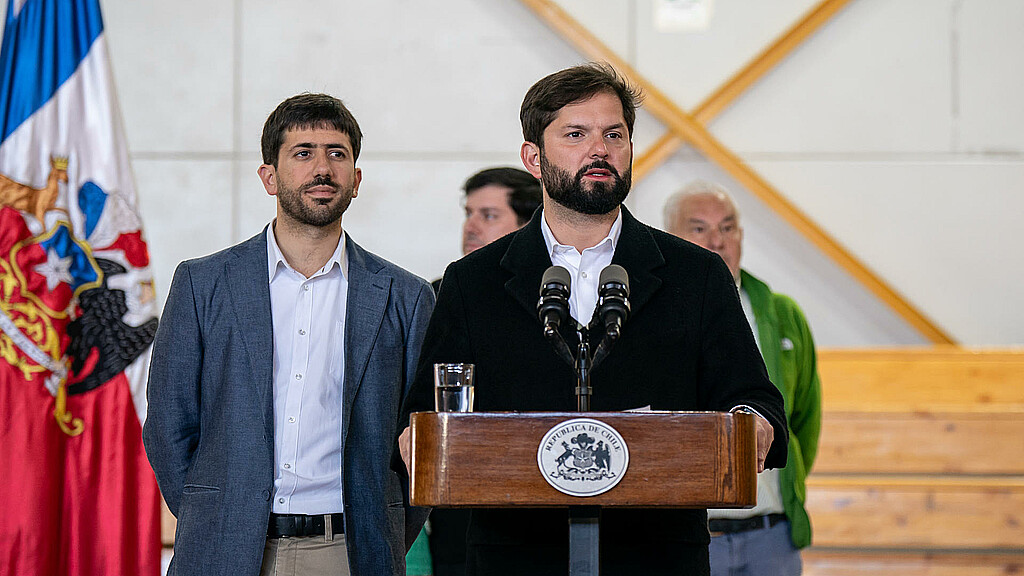Politics
Boric shuts down constitutional reforms after Chile rejects latest proposed revision
The new constitution, which has been under redevelopment since 2019, would have replaced the current constitution, which was enacted in 1980 during the military rule of Gen Augustine Pinochet

December 19, 2023 7:12am
Updated: December 19, 2023 7:12am
Chileans voted against replacing their former constitution with a new draft that has been under redevelopment since 2019, according to various news reports.
A new constitution would have replaced the country’s current version, which was enacted in 1980 during the military rule of Gen Augustine Pinochet.
In a referendum on Sunday, the new legal document was rejected by 56% of voters to 44%.
Chilean President Gabriel Boric, who supported an earlier proposed revision in 2022 remained neutral on the latest version but said before—and after the vote—it would be the last attempt to implement a new constitution.
“With this ... the constitutional process is closed. There are other urgent matters,” he said to the public on Saturday.
"Our country will continue with the current constitution, because after two plebiscites on proposed constitutions, neither managed to represent or unite Chile in its beautiful diversity."
The new constitution, which was proposed by conservative delegates, would have reportedly protected private sector participation in the provision of services such as health, education, and pensions.
Some on the left however complained it could have negatively impacted the rights of indigenous people to strike as well access to reproductive health procedures.
Still, the voters’ decision to reject the new constitution may not be entirely aimed at those issues since last year they also rejected a more progressive version that would have restricted Chile’s free market economy and expanded environmental regulation.
Chile began working toward replacing the 1980 era constitution in 2019 amid a wave of anti-government protests.
The demonstrators, many of whom were on the left, complained that the current constitution did not do enough to achieve equality, the economy and other reforms.
As a result of the political tension, then conservative President Sebastián Piñera initiated an effort to draft a new proposed constitution.
The first draft was composed by 155 elected members. It proposed changes to Chile's senate and formally recognized indigenous groups but was rejected by 62% of voters in September 2022.
This latest version, which was also rejected was written by 51 newer representatives and authored by a mix of politicians from across the political spectrum. Reports indicated 23 of them were from the more conservative Republican Party.
Some said the rejection of both versions proposed last year and this year was a relief to many, especially investors who did not want to see the 1980 constitution replaced because it helped turned the South American country into an economic powerhouse.
According to a Dec. 17 report published by The Wall Street Journal, 60% of Chileans want Boric’s government to focus on combating crime and 35% want the government to focus on the economy. A mere 2% want the government to focus on social issues such as gender equality.
Chile’s latest constitutional proposal was a major reversal of their 2022 era draft.
That version, which was considered very far left, called for giving rights to nature and granting indigenous people the right to run their own judicial system.
To see a different result, this version’s drafting effort was led by conservative José Antonio Kast, who lost the presidential election to Boric in 2021.
But Chileans apparently felt this version was either too far to the right in the other direction or simply did not address enough of their own day to day concerns.
Even Kast admitted that Sunday night.
“It’s clear that the majority of Chileans are tired of these processes that don’t provide real solutions to their problems,” the conservative leader said Sunday night.
Robert Funk, a political scientist at the University of Chile who was interviewed by the Wall Street Journal said Chileans are “in a very different moment that it was in 2019.
“There is a much more reactionary mood in the country than four years ago,” he explained. He added that replacing the 1980 constitution may not be the solution that directly resolves their concerns.
“We embarked on a big experiment that was really the wrong answer to the problem at the time,” said Funk. “The constitutional debates ended up being responses to the political moment, rather than proper discussions about what the country is about, what the political system should be.”








